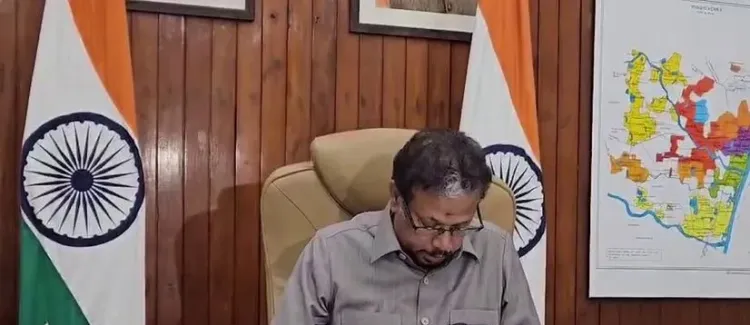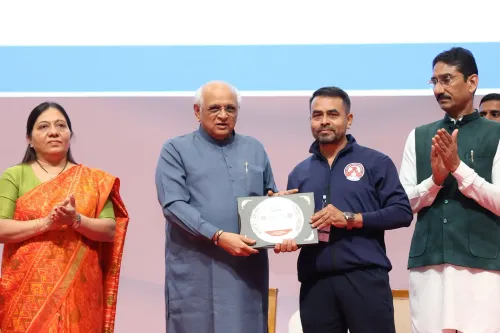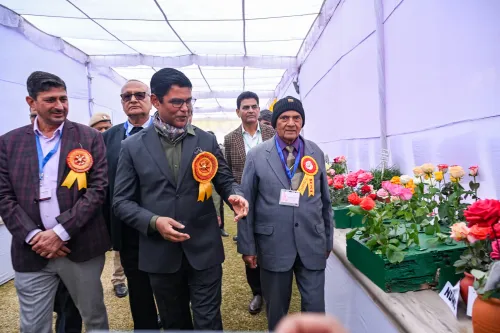Will Puducherry Achieve a TB-Free Status Before National Goals?

Synopsis
Key Takeaways
- Puducherry's TB-free goal is ahead of national targets.
- Advanced medical facilities are crucial in the fight against TB.
- The Family Adoption Programme enhances community involvement.
- Mahe has successfully eradicated tuberculosis.
- Public awareness plays a vital role in TB treatment success.
Puducherry, July 4 (NationPress) The Union Territory of Puducherry is poised to achieve a tuberculosis (TB)-free status sooner than the national timeline, as stated by Lt Governor K. Kailashnathan on Friday.
India has set a target to eliminate TB, the most lethal infectious disease worldwide, by 2025, which is five years earlier than the global deadline.
In an interview with IANS, Kailashnathan emphasized the substantial strides made in the fight against TB in Puducherry.
"Puducherry has shown remarkable progress towards TB eradication, and while the global target is 2030, I am confident we will reach it ahead of schedule...," the Lt Governor remarked.
He pointed out that the small district of Mahe is already TB-free.
"In Mahe, there are currently no TB cases. I am optimistic that the other regions of Puducherry will also be entirely liberated from tuberculosis soon," Kailashnathan added.
The success in Puducherry can be credited to enhanced medical facilities, increased access to better treatments, and improved public awareness through education.
"We have seven TB units, 28 diagnostic centers, and one Intermediate Reference Laboratory (IRL). Remarkably, this lab was recognized as India's best IRL last year. Equipped with molecular testing and gene sequencing capabilities, it stands as a world-class diagnostic center," reported DM Kulothungan A.
He further highlighted the availability of sophisticated molecular testing and gene sequencing facilities in the UT, calling them world-class resources that are crucial in the battle against TB.
Additionally, the "door-to-door TB screening program is instrumental in identifying active cases. We are targeting vulnerable populations and screening with the support of all stakeholders, including government doctors, private medical colleges, and volunteers," Kulothungan explained.
"Our treatment facilities in both government and private hospitals are robust, complemented by thorough patient follow-up—key factors contributing to our success in TB elimination in the UT," he added.
"We achieve successful treatment in 98% of cases. For less than 2% of patients, follow-up is challenging due to patient migration," Kulothungan noted.
A notable initiative for patient follow-up is the UT's "Family Adoption Programme."
"Puducherry is the first region to incorporate TB patient screening into the 'Family Adoption Programme,'" stated Dr. Kavita Vasudevan, Head of Community Medicine at Indira Gandhi Medical College, Puducherry.
Under this initiative, "medical students adopt families as part of their community outreach. When they adopt a family, they screen all family members for TB," she explained.
"If any family member presents symptoms of TB, the students assist with both diagnosis and treatment," she elaborated.
The NMC has mandated that medical students adopt 3 to 5 families and follow up for three years.










